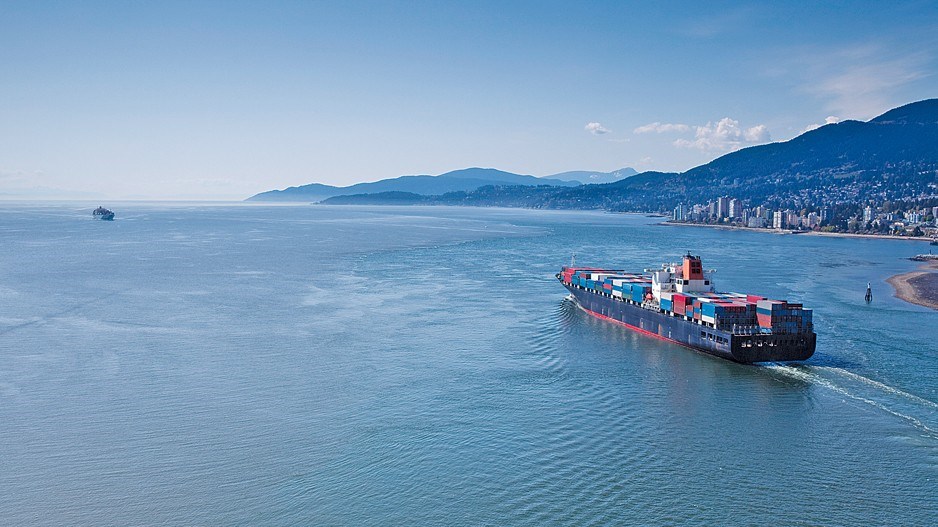Canada needs bigger trade players like the United States and China to survive – but it should also be constantly looking for new partners in order to thrive.
That’s the assessment of a number of expert observers, including former Bank of Canada governor Stephen Poloz, at a pair of recent Asia-Pacific-themed discussions involving top Canadian think tanks.
Poloz took part in an online conversation with Asia Pacific Foundation of Canada president and CEO Stewart Beck on June 24, discussing future stresses in Canada’s trade relations with Asia stemming from geopolitical tensions between powers like Washington and Beijing.
The economist, who headed the Bank of Canada from 2013 to 2020, said Canada must manage the pull of the world’s largest markets, because that’s where most of global trade activities take place.
“If the solar system were populated completely, where would all the inter-planetary trade take place?” Poloz asked. “It would take place between Saturn and Jupiter, the great big ones. And we here on little Earth would be waiting for somebody to phone us.
“To me, you have to be as well-integrated as you can with the United States and then … continue to work on China. India will also be another of the really big ones, and I think so will Brazil. The question is, how do you attach yourself to that? You have to be willing to put feet on the ground and be part of the fabric of that economy.”
Canada’s global trade position has undergone significant upheaval in recent years. The arrest of Huawei Technologies CFO Meng Wanzhou on a U.S. extradition request in December 2018, followed by Beijing’s retaliatory arrest of two Canadians, has caused Canada’s relations with China to fall to historic low points – although trade increased last year.
More profoundly, the United States under the Donald Trump administration issued a number of aggressive, anti-trade directives, such as tariffs on steel and aluminum, that have called into question Canada’s ability to depend on its two largest trading partners.
Some experts, however, noted that Washington has significantly softened its stance since Joe Biden took the White House earlier this year.
At the Macdonald-Laurier Institute panel on Pacific Realignment, also on June 24, a number of experts said the new U.S. attitude of working with “like-minded partners” in the Indo-Pacific region on trade and co-operation – a veiled reference to its aim of countering China’s rise – creates a possible opening for Canada to re-engage democratic countries in the region for trade diversification.
“It’s playing out to our strengths, because Canada is known for its unique, constructive contribution to engagement,” said Margaret McCuaig-Johnston, senior fellow at the University of Ottawa’s Institute for Science, Society and Policy. “It’s not in-your-face leadership but a more subtle type of leadership, such as the Declaration on Arbitrary Detention, which we led over the past recent months. Collaboration on advanced technology is key to this.… We have a lot to offer. There are also supporting items such as rare-earth metals, which we have a lot of. The cost of processing is now coming down, so I see us contributing in that area.”
It does not mean, however, that shifting more trade resources to markets like India or Japan would be quick, easy or cheap. One expert pointed out that while countries like India are eager to work with other markets on things like supply chains, Canada must offer sound economic and geopolitical reasons why officials in New Delhi would consider it for more business links.
“It’s important to note that Canada is already coming into a quite crowded region,” said Garima Mohan, transatlantic fellow of the Asia Program at the German Marshall Fund of the United States. “What you are willing to bring to the table is how you will be welcomed. It is important for Canada, therefore, to talk about its capabilities – what it brings to the regions.… Most importantly, where can Canada plug into the flexible coalitions on technologies, on supply chains, on strategic use of development aid and systems? I think those are important questions to figure out.”
Despite the sizable external challenge outlined by Mohan, McCuaig-Johnston believes that the biggest challenge to Canada making its case in new markets like India is internal. She noted that this is not the first time Ottawa was presented an opportunity to delve deeper into other parts of the Asian economy – but each time an opportunity presented itself , Ottawa could not sustain the programs that are needed to ingrain Canada into regional supply chains.
Such a shift, she added, is absolutely necessary given Canada’s reliance on a market like China and its tendency to use economic clout to punish its critics, as was seen last year when Beijing went after Australian exports when Canberra led the charge in the United Nations in calling for an investigation on the origins of COVID.
Poloz, however, said that any thoughts of diversification should not be viewed as taking away from one relationship in favour of another.
“I think of diversification as being additive; you make sure you invested everything you can into your relationship with your most important trade partners – the largest, most productive and dynamic economies on Earth – and then look for ways to add on to that,” Poloz said.
“If you have supply chains in China, it’s worth it to build some risk mitigation in that structure. Have a redundancy in that supply chain so that you have other sources, potentially other members of the CPTPP [Comprehensive and Progressive Agreement for Trans-Pacific Partnership] that we already know have agreed to a like-minded set of arrangements. I don’t see a lot of activity there, but there should be, because that’s an ideal way to diversify yourself supply-wise and customer-wise.”




